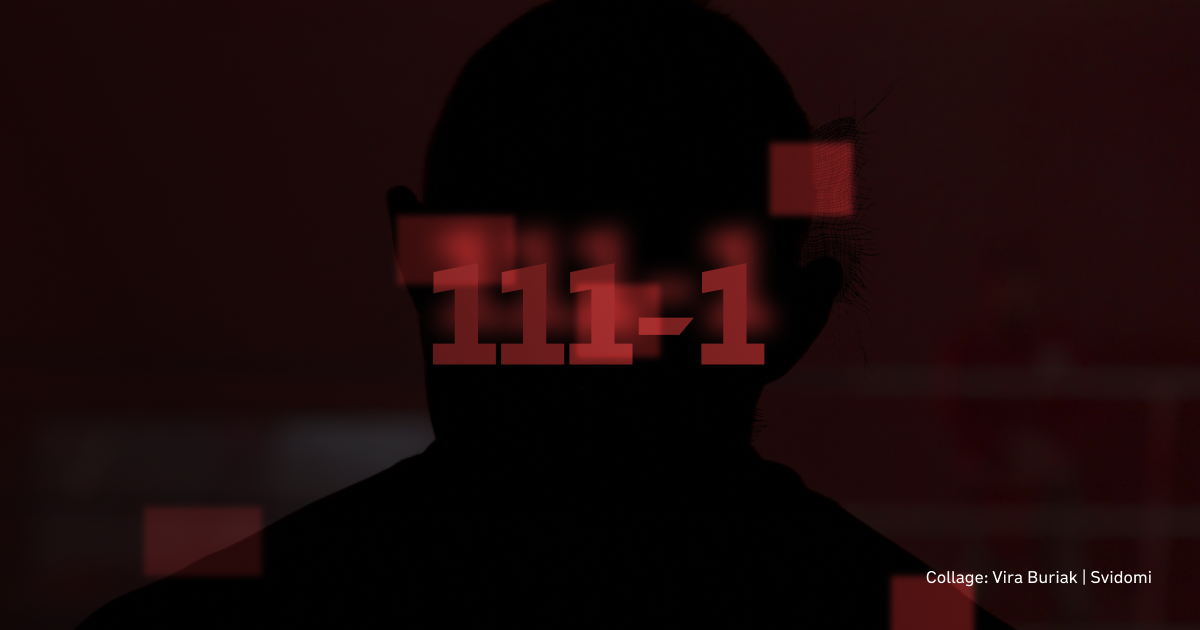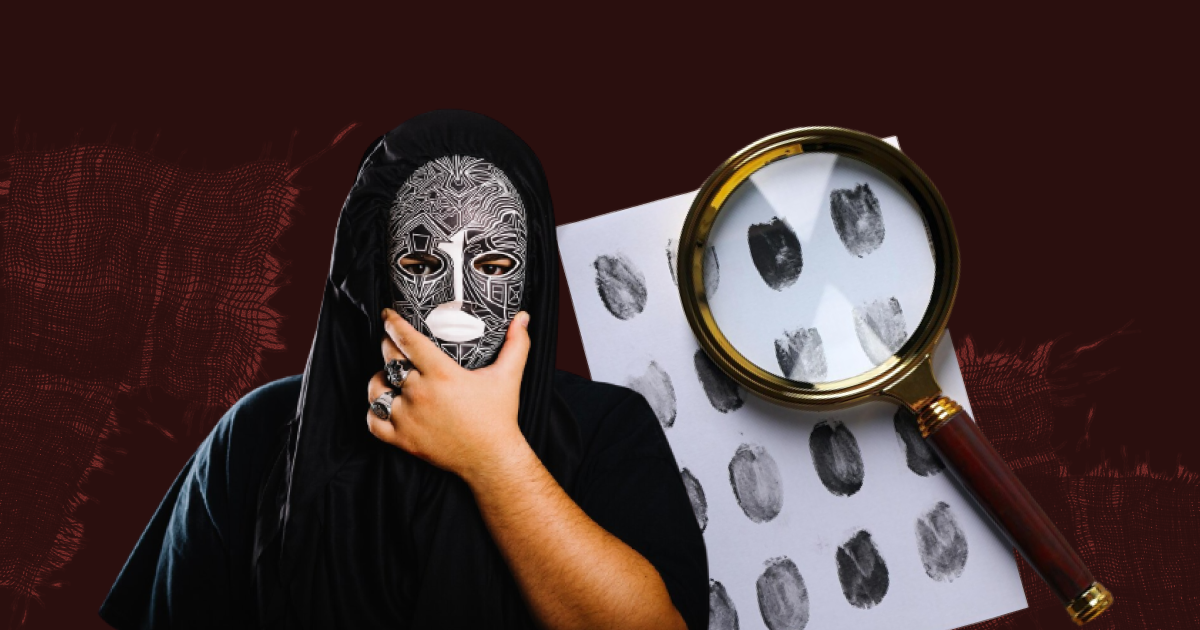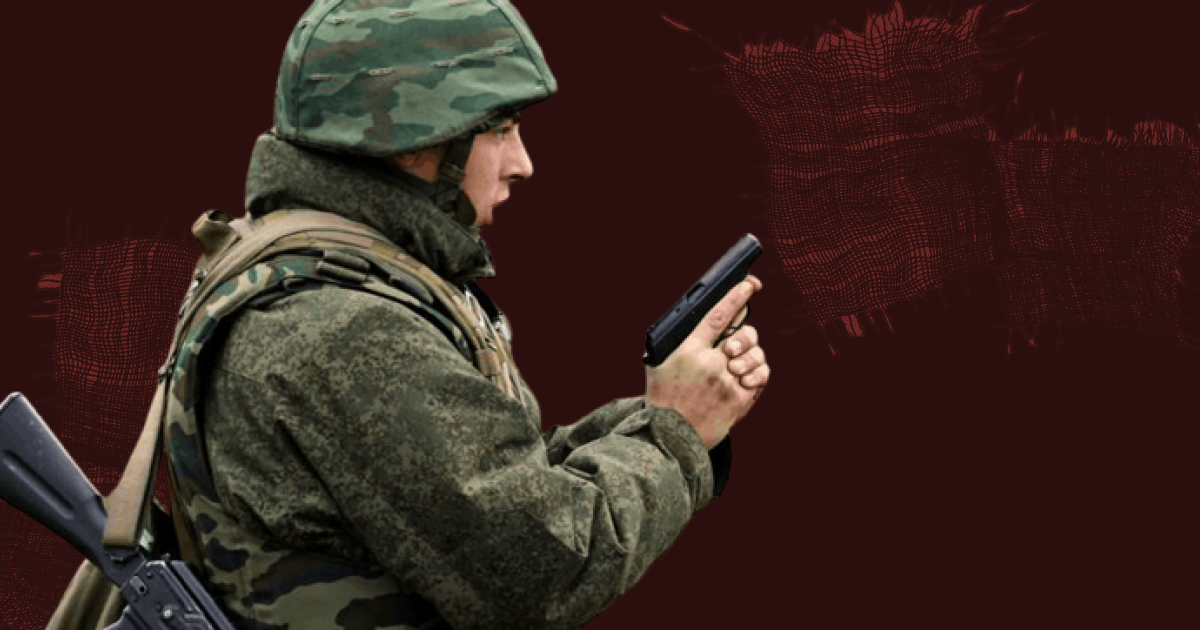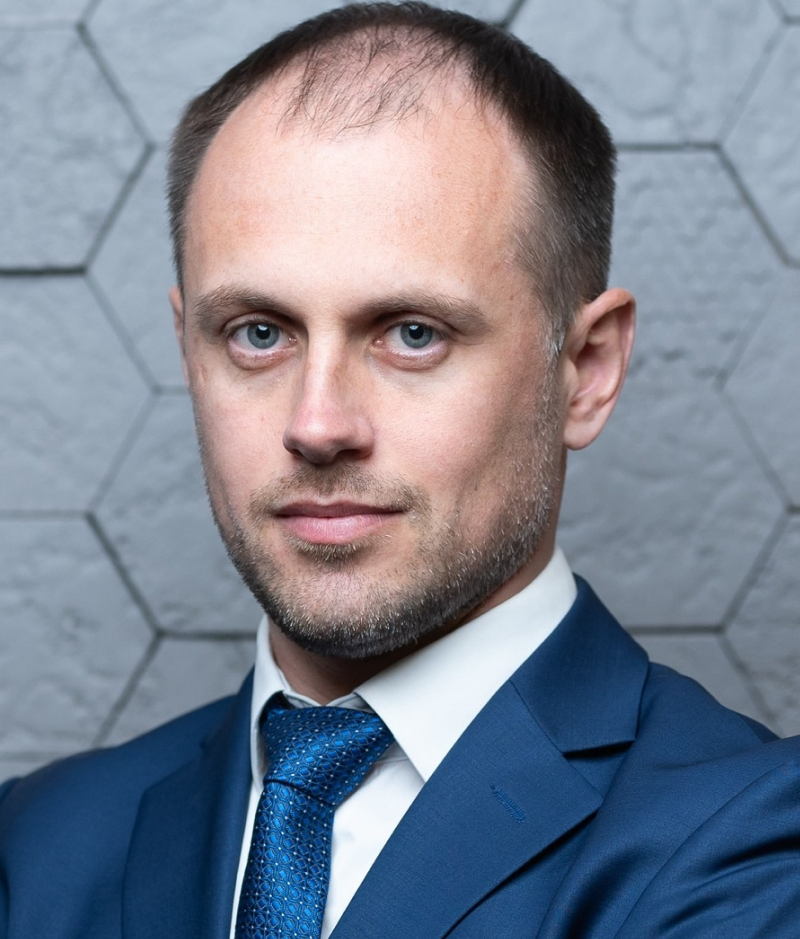Wartime Collaboration Activities: Issues of Defining and Bringing Perpetrators to Justice
Marharyta Yukhymenko

After the outbreak of the full-scale war, the legislature had to introduce an additional type of criminal liability for publicly denying armed aggression against Ukraine, calling for support of the aggressor state's actions or collaboration with the occupiers.
On March 3, 2022, a new article 111-1 was supplemented to the Criminal Code of Ukraine, establishing liability for collaboration.
However, in the two and a half years since the article was introduced, no unified investigative and judicial practice has been developed. The reason was inaccurate wording and a conflict of legal norms.
Read more about collaboration during the full-scale invasion of Ukraine, the problems of defining Article 111-1 of the Criminal Code and the investigation in the article.
Who commits national security crimes?
Nearly 18,000 crimes against national security have been registered in Ukraine since the start of the full-scale invasion. The Prosecutor's Office has opened cases, particularly against government officials who sided with the Russian Federation and headed its administrations.
The mayor of Kupiansk, Hennadii Matsehora, was one of the first to defect to the occupiers. On February 27, 2022, he declared that the city was under the control of Russian troops. In addition, according to law enforcement officials, Matsehora took part in a meeting that established a Russian-controlled 'temporary civil administration of the Kharkiv region'.
The mayor of Rubizhne, Serhii Khortiv, also collaborated with the occupation administration. At the beginning of the invasion, he disappeared from the city, which led to the appointment of the head of the military administration. But after a while, Serhii Khortiv appeared on Russian propaganda videos together with the Kadyrovites (a Chechen paramilitary organisation supporting the Russian armed forces — ed.).

He accused the Ukrainian authorities of 'genocide', fascism and Nazism. Local activists have blamed Khortiv for anti-Ukrainian activities since 2014. However, the prosecutor's office did not open a criminal case against him.
Also, in early June 2022, the Russian army occupied Sviatohirsk. The mayor, Volodymyr Bandura, sided with the so-called 'Donetsk People's Republic'. He immediately appeared in a video on Russian channels accusing the Ukrainian army of killing monks and setting fire to the buildings of the Sviatohirsk Cave Monastery.
At the same time, investigators cannot gather enough evidence for every person suspected of collaboration, such as stories on Russian television or official statements on social media. They also face problems in classifying crimes: determining the public danger, conflicting legal norms and different wording.
Challenges in evidence collection and investigation
Law enforcement officials in Ukraine's government-controlled area are responsible for investigations, while most of the evidence of crimes is located in the occupied territory. As a result, law enforcement officers usually do not have direct access to it.
If a suspect is in the occupied territory or in Russia, investigators start preliminary investigations and trials in absentia. They are conducted without the suspect, but the state provides them with a lawyer, says lawyer Denys Tereshchenko.
If the investigation takes place in de-occupied territory, shelling may destroy some of the evidence. Therefore, it is necessary to search for information in open sources: the Internet, social media, etc. However, electronic evidence can be tampered with, distorted, or made up.
Tereshchenko claims that the majority of criminal cases in the courts end in a plea bargain, with no examination of the evidence, an unconditional admission of guilt and no appeal.
One of the main sources of evidence is the interrogation of witnesses. A person may deliberately give false testimony or misinterpret events without having the full picture or knowing the details.
For example, if a person gives things to the Russian military, these actions are likely to be perceived as helping the enemy. But the fact that the person may have been threatened will go unnoticed by the witness.

Tereshchenko says each case must be considered on its own merits. He believes that the current legislation needs to be improved to meet Ukraine's challenges: "Article 111-1 probably became relevant when the concept of 'occupied territories' appeared in 2014. When a country attacks another and occupies part of it, quislings appear. We are no exception."
What is collaboration?
Collaboration is assisting the occupier, often for personal gain. Some signs of collaboration are the following:
- voluntary nature — a person must be seeking to work with representatives of the occupying power to achieve a common goal, not acting under duress or fear;
- wartime collaborators may be representatives of the local population under occupation;
- the collaborator's actions must be aimed at harming the state of which he or she is a citizen.
After 2014, when the Russian Federation occupied Crimea and started war in the Donetsk and Luhansk regions, there was a debate about the use of the word 'collaborator' to refer to the inhabitants of these territories. The Ukrainian government called for the word 'collaborator' to be dropped so as not to offend the population of the occupied part of the country.
It was proposed to define as collaborators those who held positions in the occupation administration, organised a pseudo-referendum, participated in hostilities or conducted information campaigns against Ukrainian statehood. Two drafts of such a law have been prepared in seven years:
- The draft law On the Prohibition of Collaborationism (6170) was submitted to the Ukrainian parliament in 2017 by a group of MPs led by Ihor Lapin (People's Front Political Party). The bill was withdrawn in 2019;
- The draft law On the Protection of Ukrainian Statehood from Manifestations of Collaborationism (7425) was also submitted by a group of developers led by activist Vitalii Ovcharenko and lawyer Iryna Loiuk in 2017 and withdrawn in 2019.
Currently, Ukrainian law does not have a separately defined term for 'collaborative activities'. The criteria by which a person can be qualified as a collaborator are only found in a separate article 111-1 of the Criminal Code of Ukraine.
Tereshchenko says that in March 2022, lawmakers could not predict how collaborators would cooperate with the enemy. They could only guess, based on historical experience and recorded cases in the temporarily occupied territories since 2014. The task was, therefore, difficult, which explains the unclear wording of the legislation.
The explanatory note to the draft law amending the Criminal Code in 2022 defines collaboration as cooperation with the aggressor state, its occupation administration, and/or its armed or paramilitary forces in the military, political, information, administrative, economic, and labour spheres.
According to the Security Service of Ukraine, 9179 criminal cases were registered under Article 111-1 of the Criminal Code of Ukraine (collaboration) as of June 2024. The Unified State Register of Court Decisions contains 1442 verdicts in cases under Article 111-1 of the Criminal Code of Ukraine, with the largest number of verdicts (484) under the first part of Article 111-1, which deals with public denial of Russian aggression.
Issues of the definition of Article 111-1 of the Criminal Code of Ukraine
1. Determination of public danger
During the occupation of Vovchansk, Svitlana Romantsova was the acting head of the health sector in the civil-military administration of the Vovchansk district.
According to the court's decision, Romantsova directed the health sector's activities and supervised the work of medical institutions, enterprises, and health facilities under the control of the civil-military administration. She was in charge of supplying medicines and medical devices.
The woman pleaded guilty in full.

She was accused under the second part of Article 111-1 of the Penal Code. Her penalty included 10 years without confiscation of property and the deprivation of the right to hold positions related to the performance of state and local government functions.
The Criminal Code of Ukraine does not stipulate that a person is not subject to criminal liability if the motive and purpose is to help the population, i.e. treatment and supply of medicines.
Lawyer Denys Tereshchenko says it is necessary to find out why the person cooperated with the occupiers to investigate this particular case. If the person cooperated with the Russian military and helped the occupying administration to take power, then it would harm Ukraine. If the person wanted to help the local population, these are not socially dangerous actions.
According to analytical data by the NGO ZMINA, Article 111-1 of the Criminal Code of Ukraine covers activities aimed at solving humanitarian problems in the occupied territories: providing medical services, running food stores, and logistical activities.
Therefore, residents of the temporarily occupied territories can be held criminally liable for actions that are not socially dangerous but fall within the criteria of Article 111-1 of the Criminal Code of Ukraine.
2. Conflict of laws and regulations
Since the article was introduced into Ukrainian legislation, there has been no unified investigative or judicial practice. Lawyer Denys Tereshchenko blames the lack of clarity in certain parts of Article 111-1 of the CCU and the conflict of laws when more than two legal norms claim to regulate a case. As a result, investigators and prosecutors have a wide scope for interpreting and qualifying the actions of the accused.
The same actions may fall under different articles of the Criminal Code, including
- 111 of the Criminal Code of Ukraine "High Treason";
- 111-1 of the Criminal Code of Ukraine "Collaboration";
- 111-2 of the Criminal Code of Ukraine "Assistance to the Aggressor State";
- 436-2 of the Criminal Code of Ukraine "Justification, recognition of legitimacy, denial of the armed aggression of the Russian Federation against Ukraine, glorification of its participants'.
Tereshchenko notes that the main problem is the difference in punishment between the articles: from a ban on engaging in certain activities or holding certain positions to imprisonment for up to 15 years. In this case, much depends on the prosecutor's subjective attitude to the situation.
For example, public speeches in support of the actions of the aggressor state can be qualified under several articles of the Criminal Code:
- Part 1 of Art. 111-1 of the Criminal Code: “Public calls by a citizen of Ukraine to support decisions and/or actions of the aggressor state”;
- Part 2 of Article 109: "Public calls for violent change or overthrow of the constitutional order or seizure of state power";
- Part 1 of Art. 110: "Public incitement to change the boundaries of the territory or state borders of Ukraine";
- Art. 436-2: “Justification, recognition as lawful, denial of the armed aggression of the Russian Federation against Ukraine, glorification of its participants.”

"The distinction should be established by the legislator because investigators and judicial authorities have a wide field for discussion, and this is detrimental to the criminal process,"
Tereshchenko says.
3. Difference in wording
According to Part 4 of Article 111-1 of the Criminal Code of Ukraine, the following are criminal offences: "Transferring material resources to illegal armed or paramilitary groups established in the temporarily occupied territory and/or to armed or paramilitary groups of the aggressor state, and/or conducting economic activities in cooperation with the aggressor state, illegal authorities established in the temporarily occupied territory, in particular the occupation administration of the aggressor state."
This means that two types of crimes can fall under this part. In this case, the person does not have to be a citizen of Ukraine, as is explicitly stated in other parts of the article. Also, unlike in other parts, the word ‘voluntary’ does not appear in Part 4 part of the Article.
"Let us assume that not only a Ukrainian citizen should be held liable under this part. But can a non-citizen of Ukraine be a collaborator in the occupied territory? Such a person should be prosecuted under different articles," says Tereshchenko.
In particular, Article 111-2 of the Criminal Code also provides for criminal liability for "voluntary collection, preparation and/or transfer of material resources or other assets to representatives of the aggressor state, its armed forces and/or the occupation administration of the aggressor state."
However, the penalty under this article is imprisonment for ten to twelve years, with disqualification from holding certain positions or engaging in certain activities for ten to fifteen years and with or without confiscation of property. This contrasts with part 4 of article 111-1 of the Criminal Code, which provides for a fine or imprisonment for a term of three to five years.


